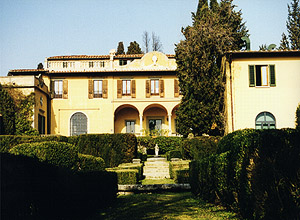Dr Melanie O’Brien is a Postdoctoral Research Fellow in the TC Beirne School of Law, and a Researcher in the Asia-Pacific Centre for the Responsibility to Protect, University of Queensland.
Melanie’s research project is titled From Discrimination to Death: Genocidal Process and Prevention Through a Human Rights Lens, and aims to construct a paradigm of the genocidal process through human rights violations to function as a map to prevent future genocides.
Melanie’s research and supervision areas include international criminal law, human rights law, international humanitarian law (IHL), feminist legal theory, public international law, comparative criminal law, peacekeeping, and military law. She has published in leading academic journals and is on the Editorial Boards of Human Rights Review and Genocide Studies and Prevention. Melanie is a member of the Australian Committee of the Armed Forces Law Association of New Zealand, and the Advisory Board of the International Association of Genocide Scholars (IAGS). She has won several prestigious grants such as the Griffith Asia Institute Australia China Futures Dialogues Visiting Fellowship to Peking University, China, and the Gandel Philanthropy Scholarship for the Gandel Holocaust Studies Program for Australian Educators, at Yad Vashem in Israel.
Melanie has previously worked at Anti-Slavery Australia in the Law School, University of Technology Sydney; the ARC Centre of Excellence in Policing and Security at Griffith University; the National Human Rights Institution of Samoa; the Legal Advisory Section of the Office of the Prosecutor at the International Criminal Court; the International Criminal Justice Unit of the Nottingham University Human Rights Law Centre; the UN Department of Peacekeeping Operations; the Raoul Wallenberg Institute; the Australian Law Reform Commission; and the NSW Crown Solicitors Office. She is an admitted legal practitioner. For a full profile with publications, see here.

 Firstly, let me comment on how spectacular the location was! The EUI is located in several different villas on a hill in Florence, and the conference was held in one of these villas and its chapel. The views were stunning, and the villa even has a beautiful sculpted garden and its own soccer field! A very nice place to work and study, indeed!
Firstly, let me comment on how spectacular the location was! The EUI is located in several different villas on a hill in Florence, and the conference was held in one of these villas and its chapel. The views were stunning, and the villa even has a beautiful sculpted garden and its own soccer field! A very nice place to work and study, indeed!  Lately there seems to be an increase in the number of stories surfacing concerning the names and whereabouts of wanted war criminals from all corners of the globe. While Serge Brammertz
Lately there seems to be an increase in the number of stories surfacing concerning the names and whereabouts of wanted war criminals from all corners of the globe. While Serge Brammertz 